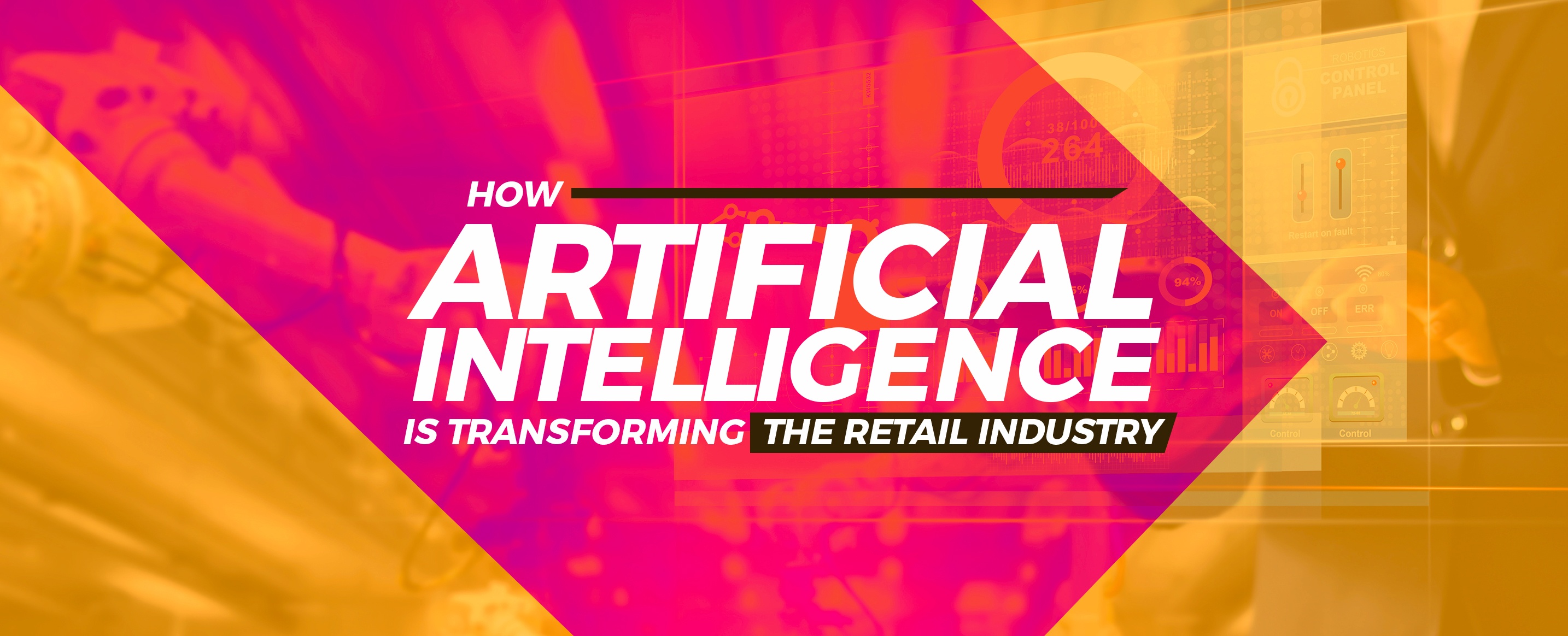
Artificial intelligence has been around us for a long time now, and not much of it is in theory. Humans have derived ways to introduce AI in different market sectors, industries and business domains to bring out maximized business benefits. The retail industry is one of the fastest adopters of this technology and it is going to change the entire system of how consumers shop/buy! Data shows that the retail industry ranked first in terms of spending in AI with a 3.4 billion U.S. dollars bill in 2018, which was followed by a 3.3 billion U.S. dollars spending for the Banking industry.
Deborah Weinswig, CEO and founder of U.S. retail and tech consultancy Coresight Research has said: “Technology will continue to strip friction from brick-and-mortar retail and AI will become retailers’ go-to technology”. It is amusing to know that the AI adoption rate by the retail industry is estimated to be a staggering 54 percent over the next three years. AI experts around the world think that AI will be a disruptive and positive pattern-changing technology – the retail industry will see a rise in the amalgamation of AI-based solutions in everyday operations. It is evident that
Globally, AI experts believe that this technology offers a wide range of applications for the retail segment. In the coming year, retail will see a greater infusion of AI-based solutions in day-to-day operations. AI will definitely change the customer service cycle in retail and both retailers, as well as the consumers, are bound to benefit from the AI-Retail syndicate.
Some of the instances where the Retail Industry is going to Leverage AI to Maximize Output:
1. Digital Racks for Apparel & Fashion Products
With thought leaders continuously boosting the industry to innovate, retailers now will pay more attention to provide amazing customer experience through their AI-driven tactics. Clothing and apparel brands can create digital shelves and racks with AI-powered gesture walls and monitors to enable easier choosing of the desired apparel without having to shuffle through the physical bulk of items. With this, customers will be quickly able to see which dress suits them and can easily browse through a lot more options. It is also important to note that when AI starts driving business, it will also solve the problem of space constraint to a wide extent – digital experience will not require a large space, just a repository of designs and data for the customers to choose from. This way, retailers will provide their customers with millions of options even without keeping the items physically in front of them! This technology-driven approach will also tell a lot about the customers’ behavior and pattern and will cater to provide better retail experience.
2. Virtual Trial Rooms for Quick Decision-Making
With physically-driven retail stores, trying out apparel or footwear a lot many times can be boring and time-consuming. However, the retail industry has something up its sleeve – with the help of virtual trial rooms and pre-installed digital/smart mirrors, the retail industry enhances the customer experience and lets them try apparel, footwear, accessories, etc without actually having to change at all. This also gives space to the diversity of consumer choices to flourish and will surely bring out new market trends based on the insights.
3. Robotic and Digital Assistance
In the coming years, it will be easier for retail marketers to include AI in their business processes. With smart analytics, multi-language support and robotic assistance customers will now receive instant support within the stores. With touch panels and simple AI-driven robots, retailers can help the consumers in locating an item easily, finding its alternatives and checking any required queries. This will also tell the necessary details about the concerned product. With AI service bots, retailers can reduce the manual costs of the company. This will not only improve the customer service level but will also attract more customers.
4. Behaviour Analytics based on AI Surveillance
As it is clear from the abovementioned points, retailers are going to pay more attention to create a better user experience through these AI-driven strategies. Using modern surveillance systems, retailers can now capture and study consumer behavior very easily within the stores. This will help them in judging and understanding the engagement level with their current business processes and will give insights on how to optimize them for higher engagement and ultimately revenues.
Video analytics can also improve the in-store security and reduce the chances of theft. With the help of AI, surveillance footage can be monitored in real-time and alerts can be sent to administrators, store owners for immediate action.
5. Customer Support via Chatbots
For the retailers, providing service via smart chatbots can be the next thing to do. These AI-powered bots will surely engage more customers in the buying process – they can handle multiple queries in no time, show more options and just be there for the consumer. This definitely reduces the workforce costs too. Chatbots can be easily configured to answer customer questions, help with various shopping choices and offer persistent support. If the retailers concoct the perfect blend of AI-driven chatbots and skilled humans, brands will be better able to cater to the customers and solve their problems and/or increase the buyer’s buying chances. With time, brands will gain significant customer loyalty since more and more consumers would engage deeply with the AI-driven, smart and personalized technology which caters to their attention in every possible way.
 All these scenarios are just but glimpses of what and how AI is going to change in the retail industry. Shoppers will experience the rule of AI solutions in the retail domain with huge investments coming in; these solutions will facilitate brands in focusing more on customers experiences.
All these scenarios are just but glimpses of what and how AI is going to change in the retail industry. Shoppers will experience the rule of AI solutions in the retail domain with huge investments coming in; these solutions will facilitate brands in focusing more on customers experiences.
Stay Tuned!
Want to know more about how you can leverage solutions and stand out in the retail industry? Contact Us Now!











